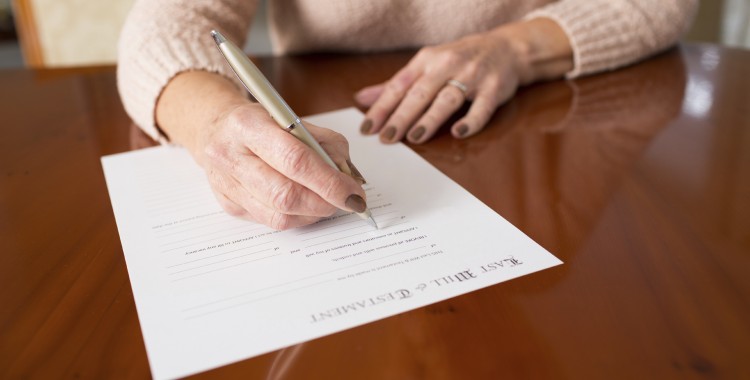
The Revocable Living Trust
Estate Planning
The Intelligent Estate Planning Contract which allows you to pass your assets to beneficiaries without the expensive lawyers, court costs, or the Probate system.
What is a Revocable Living Trust?
A legal contract used as an alternative to a Will. It is an entity that exists on paper and is legally capable of owning property. Once the Trust has been created, you can transfer property into it and the Trust becomes owner. You are appointed as Trustee (Owner) of the Living Trust, with full power to manage Trust property, just as you do now. Its primary purpose is to avoid probate, conservatorship and reduce estate taxes. You have complete control of all assets placed into Trust. Only you can withdraw money from your accounts, sell your home and make changes.
Why are so many people choosing a Living Trust instead of a Will? A Living Trust:
- Avoids Probate and the related expenses, both emotionally and financially
- Prevents court ordered conservatorship when you are physically or mentally incapable
- Is completely private, not public record
- s low cost and easy to set up and maintain
- Grants protection of minor children from court imposed guardianship
- Allows you to keep control, even at loss of identity or after you death
- Can protect individuals with Special Needs
- Eliminates the problems of Joint Ownership with children
- Prevents impounding of your assets
- Is completely changeable and can be updated or cancelled at any time
- Allows disinheriting
Understanding Probate
What is Probate?
When you have a Will, your assets have to go thru Probate before they can be distributed to your heirs. Probate is the process of proving the validity of a Will, along with determining the value for distribution of the deceased person’s property. If you do not have a Will, the Probate Court will (according to State Law) also determine who the heirs of your estate are. The main function of Probate is to change title and tax necessary assets of the deceased person.
Problems Associated with Probate:
- Public disclosure of personal wealth, debts and beneficiaries
- The estate is under the control of Third Parties
- Contestable by anyone, risk of false claims
- Impounding of Assets, inventories, bank accounts, mail, and safety deposit boxes
- Forced asset liquidations
- Probate fees
- Attorney fees
- Administrator fees
- Appraisal fees
- Substantial delays before distributions to the heirs
- The internet provides immediate access to your will
Probate’s Pain:
Probate’s procedure is time consuming and can be a complex process. Although the law provides for a minimum period, it does not offer a maximum time for completion of an individual estate. Studies have found the average process time for probate to be 1 to 2 years, but Probate can take much longer depending on the size of the estate. During that time, there are normally no distributions to your family. Your family will not only suffer from the loss of control and delays, but lose a large portion of your hard earned estate to court costs and attorney fees.
